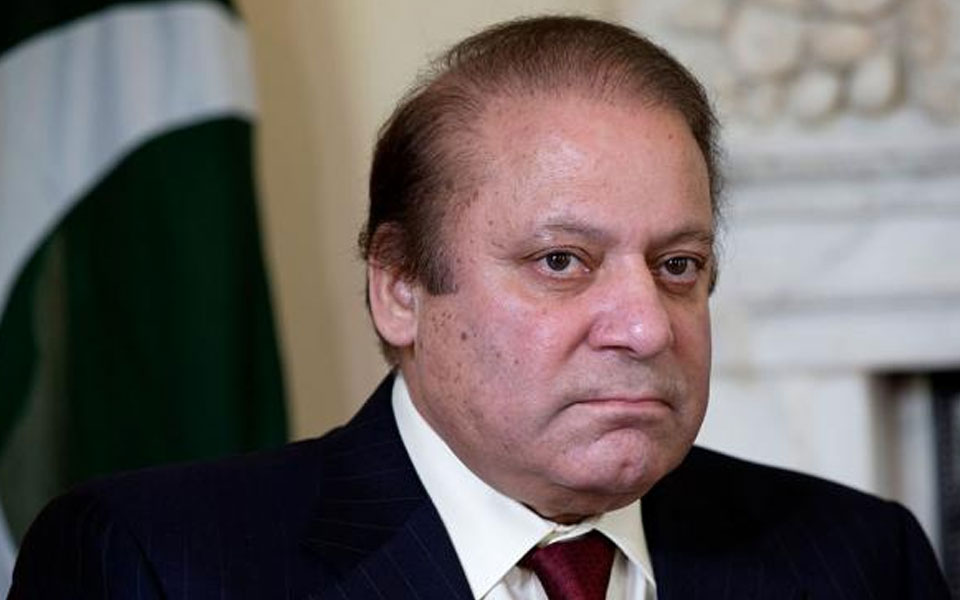Islamabad, Aug 15: Former Pakistan Prime Minister Nawaz Sharif celebrated the nation's Independence Day in the Rawalpindi Central Jail on Tuesday with other inmates, the media reported on Wednesday.
"Three cakes weighing 10 pounds each were brought to the jail and the former premier paid for them," Dawn news quoted a jail official official as saying.
At the request of some inmates, Sharif cut a cake and made a brief speech, he added.
Sharif's daughter Maryam Nawaz and son-in-law retired Capt Muhammad Safdar were present at the event.
Maryam informed women inmates about the progress the country made during the tenure of the Pakistan Muslim League-Nawaz (PML-N) government.
According to the official, the jail inmates took interest when the former Prime Minister told them about events leading to his government's decision about conducting nuclear tests in 1998.
He said Sharif had also spoken about his family's struggle after the independence of the country.
Meanwhile, Sharif expressed the resolve to initiate a programme for providing higher education to prisoners in jails across the country, according to a senior PML-N leader.
"In this regard, the Islamic International University's help will be required," he told Dawn.
There was a plan to provide postgraduate education to interested prisoners and classes for it would be organised inside jails, he added.
Sharif, Maryam and Safdar are serving prison sentence of 10 years, seven years and one year, respectively after being convicted in the Avenfield case involving the family's ownership of four luxury flats in London.
Let the Truth be known. If you read VB and like VB, please be a VB Supporter and Help us deliver the Truth to one and all.
Dubai: Smoke was seen rising from an area near the United States Consulate in Dubai, according to witness accounts cited by Reuters.
There was no immediate official confirmation on the extent of damage or whether there were any casualties in the incident.
Earlier, the US embassy in Riyadh, Saudi Arabia’s capital, was also attacked. Authorities reported damage to the premises, but no casualties were recorded.
The developments come amid heightened tensions in the region, with Iran continuing to target US interests in the Middle East following deadly attacks launched on Saturday by Israel and the United States.
Near US embassy in Dubai pic.twitter.com/z5VTZNVxNO
— Sahil Shah (@thesahilsshah) March 3, 2026





